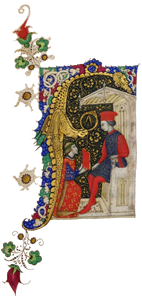Francesco Filelfo and Beyond

Investigations regarding the figure of Francesco Filelfo continue on various fronts, encompassing linguistic aspects of his production, the network of his relationships, and the historical-artistic implications therein. One area of inquiry under consideration pertains to his relationship with medical tradition and his role within the development of satirical genres.
